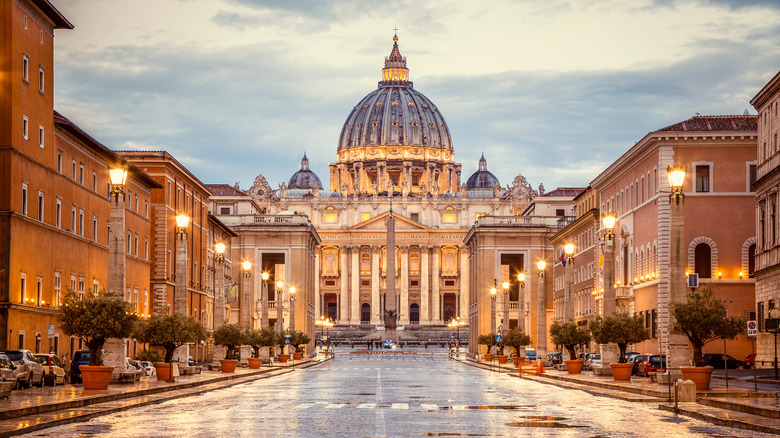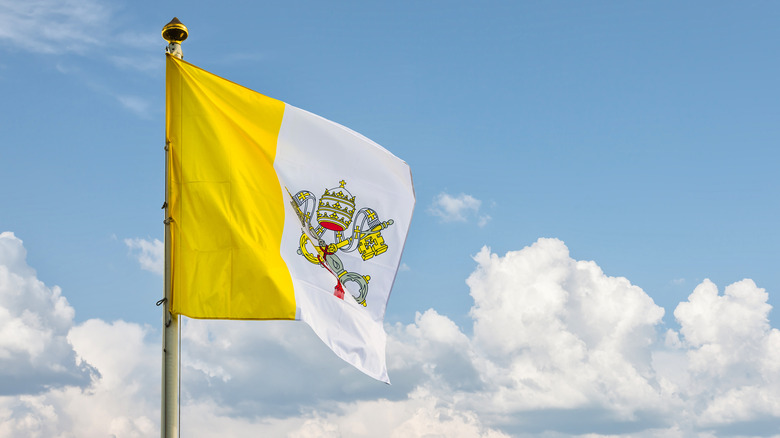The Surprising Reason Vatican City Was Created
With the final fall of Constantinople in 1453, Rome was left as the last center of Christianity to not be overtaken by a non-Christian power. Even that was barely assured in the Battle of Lepanto, where a coalition of several Christian navies managed to turn back an Ottoman fleet (via HistoryExtra). Meanwhile, the Sack of Rome in 1527 by rogue troops of the Holy Roman Empire nearly cost Pope Clement VII his life. Despite these close encounters with destruction, the Papacy managed to hold immense sway over the monarchies of Europe for centuries.
Even after the Greek Orthodox and Protestant faiths formed their own branches of Christianity, the Pope remained a powerful figure. In addition to his political leverage, from A.D. 754 to A.D. 1870, the Pope (mostly) directly controlled the government and military of the Papal States — a country which dominated a large portion of northern Italy, per Your Dictionary. Yet today, the Pope's direct control does not extend beyond the Vatican, and decades ago, this control was even less pronounced.
A sovereign Vatican City may not have existed without Mussolini
From the fall of the Western Roman Empire to the 19th century, Italy was a collection of independent and foreign-controlled regions, the Papal States being one of them. But in the late 1800s, a growing movement toward a singular independent Italy led to several revolutions and independence wars. And in 1870, nearly all of Italy was under the control of former Sardinian King Victor Emmanuel II, except for the remaining territory of the Papal States (and San Marino, which to this day remains the only nation within Italy to have maintained continuous independence).
The Pope's army was defeated in battle, and Rome became the capital of the now-consolidated Kingdom of Italy. For the next 59 years, the Papacy continued within the Vatican complex but had no sovereignty (via History.com). Meanwhile, the government became increasingly concerned that a Pope, as an Italian citizen, may attempt to insert themselves into national politics at some point. This changed in 1929 when Benito Mussolini resolved the issue with the Lateran Treaty (via Vaticantips). This agreement rendered the Vatican itself an independent nation within the city of Rome, giving the Pope some semblance of authority over his new country's several hundred citizens.

